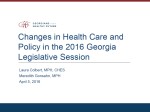- Home
- >
- Our Priorities
- >
- Getting Georgia Covered
- >
- Closing the Coverage Gap
Closing the Coverage Gap

Veterans, working parents, and low-wage workers fall into the coverage gap between current medicaid coverage and insurance marketplace coverage
Since 2013, hundreds of thousands of Georgians have signed up for low-cost health coverage. Being covered means they are less stressed, more financially secure, and healthier. This is exciting progress, yet there is still a missing piece.
About 240,000 Georgians remain unable to get coverage. These Georgians are veterans, working parents, and low-wage workers. They are our friends, family members, and neighbors. They do not qualify for Medicaid and do not make enough money to get financial help through the health insurance Marketplace (also called healthcare.gov). They are stuck in the coverage gap.
Our elected officials have the power to solve this problem. The health care law was designed so that all Americans could access quality, affordable health insurance, but our state government still has work to do. Governor Kemp and the state legislature can choose to use federal tax dollars that have been already set aside to provide coverage to those in the gap.
On this page you will find resources and information about our campaign to close the gap in Georgia. To learn more about the Cover Georgia coalition (or if you are an existing coalition partner and want to access additional advocacy tools and resources), visit our Cover Georgia coalition page.
Since 2010, 9 rural hospitals have closed in Georgia. That puts Georgia third in the nation for hospital closures behind Tennessee and Texas. Rural hospitals in states with no Medicaid expansion are more likely too close, shutting off access to care for their communities.
When a hospital closes in a rural community, the effects ripple through every aspect of community life. The hospital’s doctors and nurses move to other communities. Residents are left without access to emergency care and other important health services. The businesses around the hospital may close—a local pharmacy, the downtown diner, or the florist. Jobs are lost and businesses become reluctant to move to the area because it lacks health care. Visit GHF's Georgia Can't Wait page to learn more about this project.
Related Resources (26 items) Go to Library
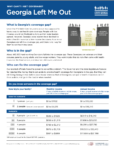
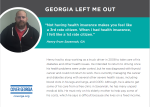
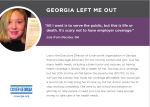
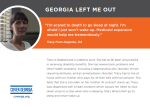
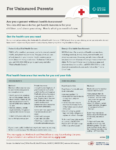

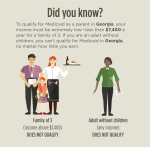
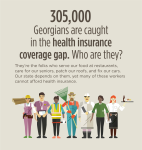


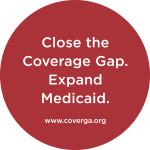
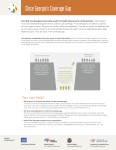
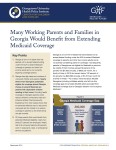
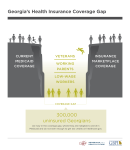
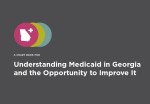
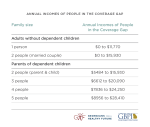
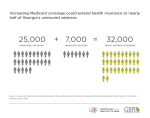
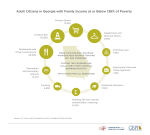
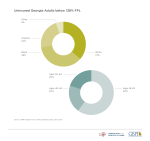
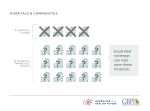
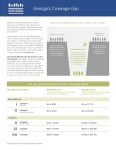

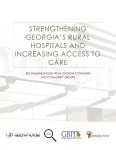
Stay Connected
Share Your Story

Mary cares for her two children and grandchild. Making only $16,000 a year, Mary is unable to afford the medications she needs for her treatable chronic conditions. More than anything, Mary would like health insurance for preventive care. "Poor people can't afford to get sick."

